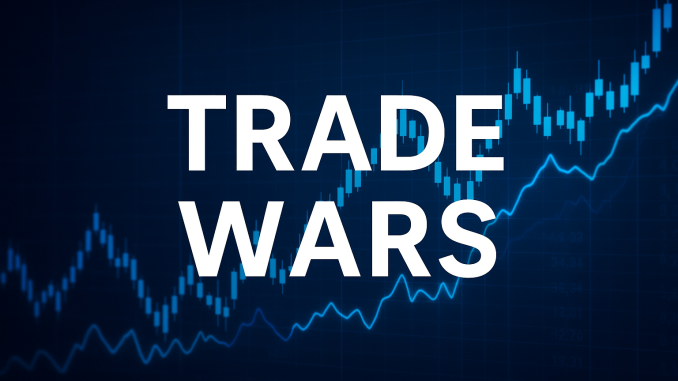
Trade wars—economic conflicts where countries impose tariffs or other trade barriers against each other—have become a recurring theme in the global economy. While their primary targets are import and export policies, the effects ripple far beyond government negotiations. One of the most immediate and visible consequences of trade wars is their impact on the stock market.
Here is how trade wars affect stock prices, investor behavior, and market stability.
1. Market Volatility Increases
Trade wars create uncertainty, and financial markets dislike uncertainty. Investors react quickly to news about new tariffs or retaliatory measures, often causing stock prices to swing sharply in a short period. This volatility can result in daily gains or losses in the billions, especially for companies with significant international exposure.
2. Impact on Multinational Corporations
Large corporations that rely on global supply chains and export markets are often the first to feel the effects of trade disputes. Companies in industries such as technology, automotive, and manufacturing may see increased production costs or reduced sales. As a result, their stock prices can drop significantly during periods of heightened trade tensions.
For example, if tariffs are placed on electronic components from China, tech companies in the United States may suffer from higher input costs, leading to lower profit margins and reduced investor confidence.
3. Sector-Specific Effects
Not all sectors are affected equally. Industries that depend heavily on imports or exports—like agriculture, steel, and semiconductors—tend to be more sensitive to trade war developments. Conversely, companies that serve mostly domestic markets may be less exposed and can sometimes benefit if local demand replaces foreign supply.
For instance, local steel producers may gain a temporary advantage if foreign steel becomes more expensive due to tariffs, boosting their stock performance.
4. Investor Sentiment and Behavior
Trade wars can change how investors view the market. Many may move their money into safer assets such as bonds, gold, or stable blue-chip stocks. This shift in investment strategy can depress overall market activity and reduce growth in more vulnerable sectors. Risk-averse behavior becomes more common during uncertain economic periods.
5. Central Bank Influence
During trade conflicts, central banks may respond with monetary policy adjustments to cushion economic impacts. Lowering interest rates to support growth can sometimes stabilize markets, while signs of prolonged trade conflict may force more aggressive interventions. These policy shifts can directly influence market expectations and investor decisions.
6. Global Spillover Effects
Trade wars between major economies, such as the United States and China, do not just affect those two countries. Global supply chains and investment flows mean that many other markets—especially in emerging economies—may also experience instability. Stock markets in Asia, Europe, and Latin America often mirror the ups and downs of the conflict.
Conclusion
Trade wars have a powerful influence on the stock market. They increase volatility, reshape investor behavior, and impact both global and local companies. While some sectors may benefit in the short term, the long-term effects often include reduced confidence, slower growth, and unpredictable market performance.
For investors, staying informed and diversifying their portfolios are key strategies during periods of trade tension. As global economies remain interconnected, the effects of trade disputes will continue to play a major role in shaping the direction of stock markets around the world.